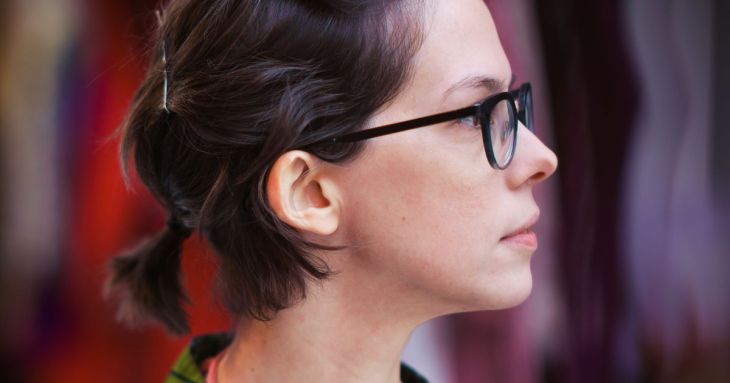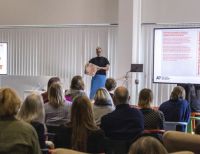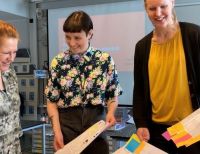What do you research and why?
‘I finished my doctoral studies here in Aalto in 2019, where I researched how we experience our relationship with clothes. My thesis, titled “Becoming with Clothes", explored paths to more active relationships between people and the things they wear, and the ways humans and clothes interact. My current work and research interest are based on my studies and continue from there. And I do that especially through practice-led research, which means that designing is part of the work.
The things we wear have a great impact on our everyday lives, and we don’t often think much about it. For instance, you can think of how you may avoid spaghetti with tomato sauce at the canteen when wearing a white shirt. Our clothes can affect us in many ways. So, in other words, I am interested in what fashion can do for more responsible futures, as a designer, as an educator, as a researcher and as a wearer.’
What are the most important issues and trends in your field?
‘Fashion is so complex, and at the same time it’s part of everyone’s life, connected through many aspects, making it difficult to look at it separately. So, for me, the main issue in the field is, of course, climate collapse. It’s maybe too much to think of as an issue or trend, but I think this sense of urgency can make us a little angry, a little restless, and that will prompt us to act.
Fashion can be a major force in the change towards sustainability, it can really make a difference. This potential is, however, yet underused. We need to have critical discussion on fashion and work on how to affect the fashion system: how can we change the processes, design and experiences? We need to invite fashion designers, researchers and wearers together, and to start seeing clothing’s ability to act. The more people are engaged, the better the impact.’
Why should you study fashion?
‘That’s an easy question. Because fashion is a major driving force for systemic change. So, whether you are interested in making people feel good about themselves or in changing the world, fashion can be a great platform to act with. We often hear that fashion is one of the most polluting industries, but it has amazing potential to make people understand there is a lot we can impact on concerning overproduction and overconsumption. We should focus on the positive intake on fashion, on what it can be and especially what it can do. It’s not a passive thing, it changes us and through that we can make an impact. It’s gigantic and yet simple at the same time.
Students have been very critical bringing up these topics way before, they have always been asking the questions from us. They’re committed – they’re the ones living it, and we should encourage them to act. This all might be too massive for the students to comprehend and to deal with, so we need to make sure they don’t freeze amidst these questions.’
What are your expectations for the future of fashion?
‘What I want to say to people is: don’t give up on fashion! But we need to start shifting from human-centred fashion to earth-centred fashion, start to think how we as designers and wearers relate to their environment in general. We need to approach fashion with more critical and sustainable orientation and find ways to be more adaptable, sustainable and responsible in everything we do.
I would also love to see hierarchical ways in fashion be challenged, and I’m expecting fashion to become more diverse and respectful by taking it more critically. I would love to see more industry-light processes explored, that demand less energy and rescue ancient knowledge. I also expect fashion to come out of its bubble more often, and be open to collaborations.’
What else are you interested in?
‘Coming from a mountainous part of Brazil, I’ve been interested in being in the forest since moving to Finland. I really enjoy walking, hiking and just being out in the nature. I'm bad at all sports but can o a lot with my hands: crafting, cooking and such--just making sense of the world with my hands. As a teenager I was dancing classic ballet but also had a punk rock band. I’ve always liked diversity in the things that I do. Being part of a multicultural family myself, I find this very important.’







